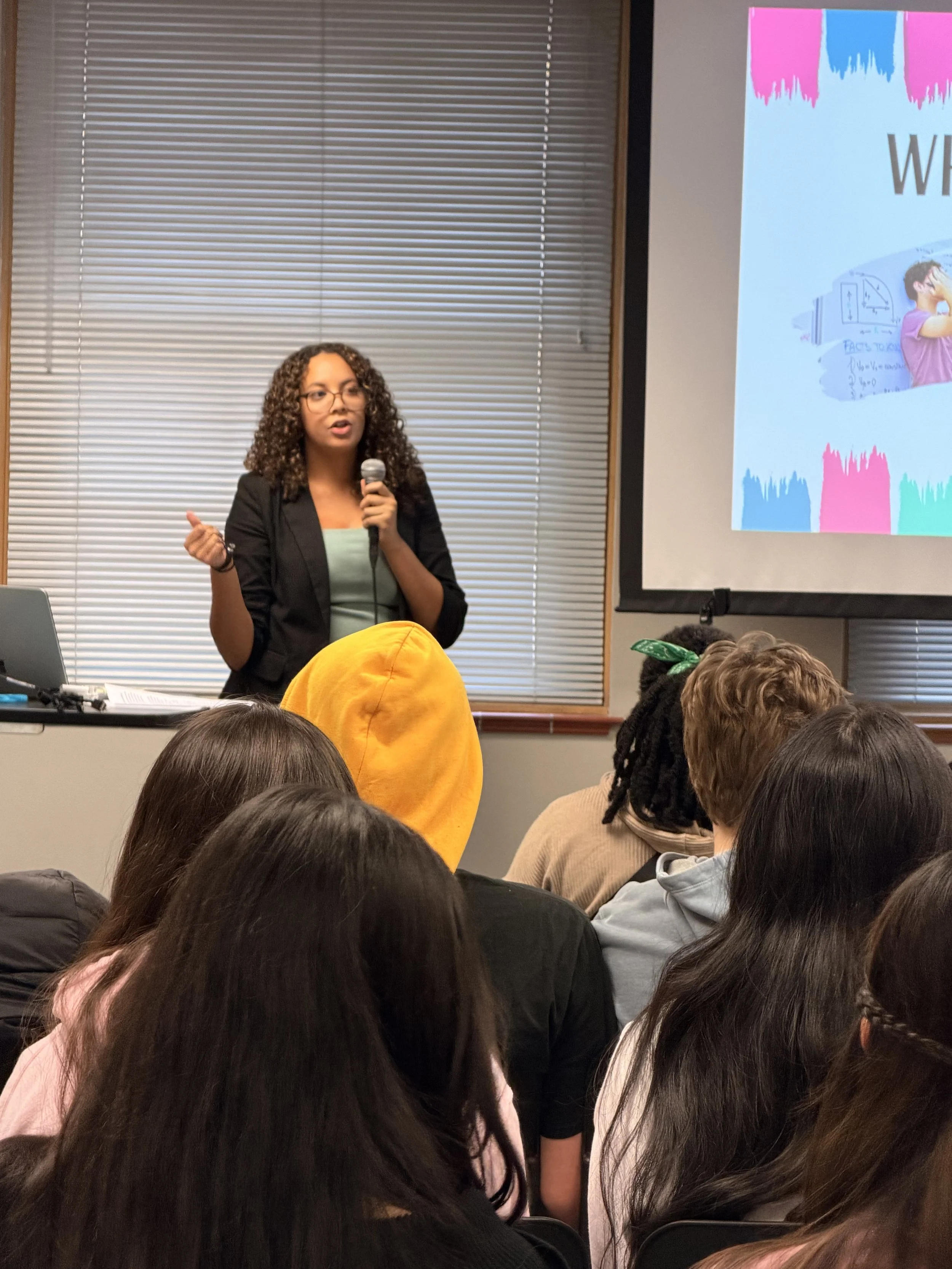Teen Entrepreneur Alejandra Wells Leads Mental Health Coping Workshop at Youth Impact Summit
At the Youth Impact Summit on Friday, one moment stood out among a full day of workshops, keynote speakers, and youth-led conversations: 17-year-old entrepreneur Alejandra Wells stepped to the front of a packed breakout room and delivered a message that resonated deeply across the student audience.
Wells, founder of the teen mental health initiative Hiya and creator of GoShopHiya.com, led “Bracelets & Balance: Turning Stress into Strength,” an interactive session designed to help students understand everyday stressors and practice practical coping strategies. The workshop was part of the annual Summit hosted by Inclusive Communities at the University of Nebraska at Omaha’s Milo Bail Student Center, which brought together hundreds of regional high school students for a day of leadership development, identity exploration, mental health conversations, and community building.
Her session invited teens to identify pressures they face, such as academic demands, social dynamics, family expectations, and the constant weight of social media, and translate those experiences into intentional bracelet designs. Each bead color represented a coping skill or personal strength: blue for calm, red for courage, yellow for joy, and black for challenges overcome. As Wells explained the meaning behind each choice, students threaded beads and reflected quietly, some sharing stories of anxiety, friendships changing, or battling self-doubt.
Wells also shared her own journey in building Hiya, describing how lived experiences with mental health inspired her to create a teen-led movement focused on a simple truth: checking on the people you care about can save lives. She spoke candidly about what it means to be a young founder with a mission and the courage it takes to speak up about mental wellness, even when it feels uncomfortable.
The room responded in kind, leaning forward, nodding, laughing at moments of recognition. For many students, the session offered rare permission to be honest about their stress and to see themselves reflected in the stories of someone their own age.
The Summit, presented in partnership with The Lozier Foundation, featured a full day of programming shaped by the event’s Youth Advisory Committee. Guided by the theme “Reflect. Grow. Act.”, the schedule included breakout sessions on identity, social impact, sustainability, coping strategies, digital empowerment, and belonging.
Throughout the day, students repeatedly returned to one message emphasized in the Summit’s welcome program: this is “a day created by young people, for young people… where your voice matters.”
One student attendee, reflecting on the day’s conversations, captured the spirit of Wells’ session and the Summit at large:
“We’re all figuring things out, but hearing each other’s stories makes it clear we’re not alone. Today feels like a place where we can finally be honest and feel seen.”
The Youth Impact Summit concluded with a closing circle led by Inclusive Communities Executive Director Cammy Watkins, inviting students to carry forward the lessons of the day: self-acceptance, community care, courage, and connection.
For Wells, whose work centers on creating safe spaces for youth mental health, Friday’s workshop was an opportunity to model peer-to-peer leadership and demonstrate that resilience can be built one conversation, one story, and even one bead at a time.


